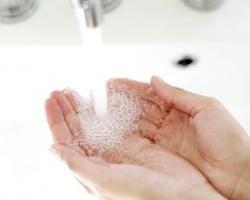Washing your hands every day is a good idea. It helps to prevent the spread of pathogens that could make you or someone else sick.
The World Health Organization even has a campaign devoted to promoting the washing of one's hands as well as an international hand-washing day to recognize it. The campaign encourages people to wash their hands for as long as it takes them to sing (to themselves) the song, "Happy Birthday." That is considered the length of time necessary to wash one's hands fully.
OCD and hand-washing
Unfortunately, for people who suffer from obsessive-compulsive disorder (OCD), hand-washing can become one of the symptoms. People who have OCD may experience a compulsive need to carry out repetitive functions that they believe will help them control the thoughts, emotions, or feelings that they can't otherwise escape.
When a person with OCD compulsively washes his or her hands, this person may be ostensibly experiencing a fear of bacteria, illness, or germs in general, or for other reasons. The need to feel clean in a person with OCD is generally not confined to the hands, though it may be the most noticeable manifestation.
Effects of excessive hand-washing
It might come as little surprise to learn that dermatologists are often the first health care professionals to notice OCD in patients who compulsively wash their hands.
Speaking physiologically, the effects of excessive hand-washing typically manifest as dry skin. Washing one's hands can remove some of the moisture in the skin, leaving them vulnerable to drying out. However, repeatedly doing so—and doing it with vigor—can have far worse effects. The person can experience redness, peeling skin, bumps, and blisters.
Our skin can be regarded as the first line of defense against pathogens getting into our bodies, so the last thing you want to do is to reduce the efficacy of that blockade by creating open sores such as blisters.
OCD and excessive hand-washing are treatable, often with the right combination of medications and cognitive-behavioral therapy.



